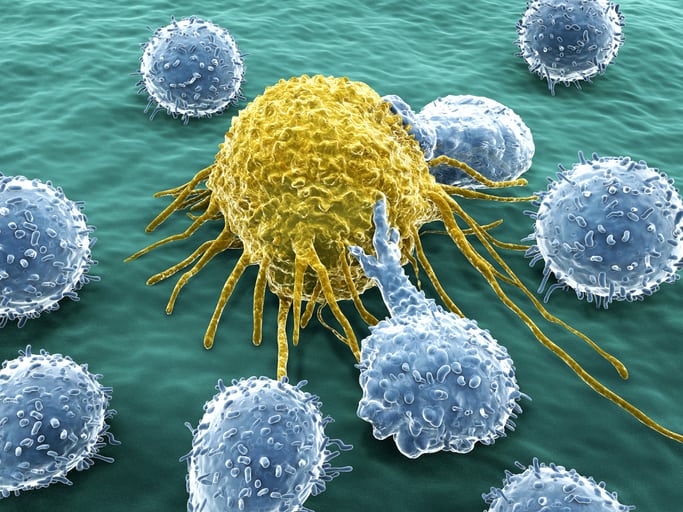The discovery of RNA interference (RNAi) more than two decades ago opened avenues for avant-garde cancer treatments that possess the ability to evade issues hampering current chemotherapeutic strategies, owing to its specific gene sequence-driven mechanism of action. A potent short interfering RNA (siRNA) delivery vehicle designed to overcome physiological barriers is imperative for successful RNAi therapy. For this purpose, this study explored the characteristics and therapeutic efficacy of low-molecular weight (MW) polyethylenimine (PEI) with high cholesterol substitution, yielding water-insoluble polymers, in chronic myeloid leukemia (CML) K562 cells. A strong impact of cholesterol grafting on the physicochemical attributes of the resultant polymers and their corresponding complexes with siRNA was observed, with the siRNA binding capacity of polymers increasing and complex dissociation sensitivity decreasing with increase in cholesterol content of the polymers. The modified polymer complexes were significantly smaller in size and possessed higher cationic charge compared to the parent polymer. The interaction with anionic heparan sulfate preoteoglycans present on the cell surface was significant in cellular uptake of the complexes. The therapeutic efficacy of siRNA/polymer complexes was reflected in their ability to effectively silence the reporter green fluorescent protein gene and endogenous CML oncogene BCR-ABL as well as significantly inhibit colony formation by K562 cells post BCR-ABL silencing. The results of this study demonstrated beneficial effects of high levels of hydrophobic substitution on low MW PEI on their functional performance bestowing them the potential to be potent RNAi agents for CML therapy.© 2021 Wiley Periodicals LLC.
Investigation of water-insoluble hydrophobic polyethylenimines as RNAi vehicles in chronic myeloid leukemia therapy.


